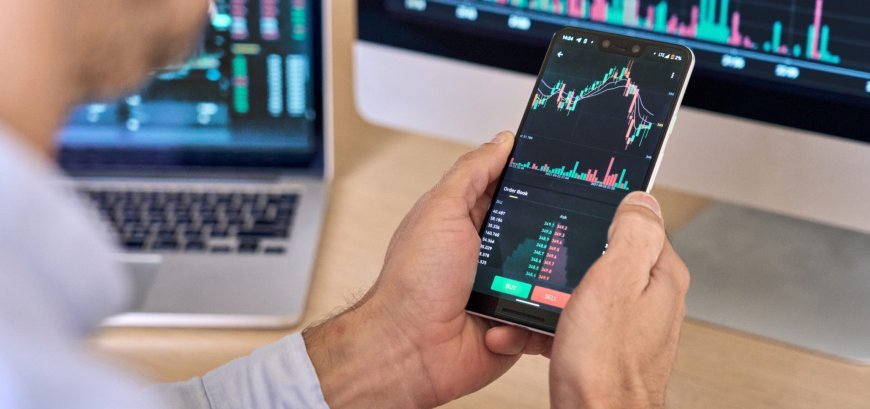Forex Trading Spain
Forex Trading Spain, Stock investments, Forex, Cryptocurrency & Meme Coins Trading best forex trading brokers myfastbroker.com forex brokers online fintechzoom best.

Forex Trading in Spain: A Comprehensive Guide
Forex trading, or foreign exchange trading, is one of the largest financial markets in the world, offering ample opportunities for investors to trade currencies. In Spain, Forex trading has seen a significant rise in popularity over the past decade, attracting both seasoned traders and beginners eager to explore the global currency markets. This article provides a detailed guide to Forex trading in Spain, including regulations, popular platforms, strategies, and answers to frequently asked questions.
1. Overview of Forex Trading
Forex trading involves buying and selling currency pairs to profit from fluctuations in their exchange rates. Traders speculate on the value of one currency against another, with the goal of making a profit from price differences over time.
Key Features:
- Market Hours: The Forex market operates 24 hours a day, five days a week.
- Leverage: Forex brokers often offer leverage, allowing traders to control larger positions with smaller amounts of capital.
- Liquidity: The Forex market is highly liquid, with trillions of dollars traded daily.
2. Forex Trading in Spain
Spain has a thriving community of Forex traders, supported by an array of international and local brokers. The country’s regulatory framework provides a secure environment for trading, ensuring traders' protection and fair practices.
Popular Currency Pairs in Spain:
- Major Pairs: EUR/USD, GBP/USD, USD/JPY
- Minor Pairs: EUR/GBP, EUR/AUD
- Exotic Pairs: EUR/TRY, USD/SEK
3. Regulations for Forex Trading in Spain
Forex trading in Spain is regulated by the National Securities Market Commission (CNMV), the main financial regulatory authority. The CNMV ensures that Forex brokers operating within the country comply with strict rules to protect traders.
Key Points:
- Brokers must be registered with the CNMV or an equivalent EU regulatory body.
- Traders are protected under the European Union’s Markets in Financial Instruments Directive (MiFID II).
- High leverage limits are restricted for retail traders to reduce risks.
4. How to Start Forex Trading in Spain
Step 1: Choose a Reliable Broker
Select a broker that is licensed by the CNMV or a reputable international regulator such as the FCA or CySEC.
Step 2: Open a Trading Account
Sign up for an account with your chosen broker. You’ll need to provide identification and proof of address.
Step 3: Fund Your Account
Deposit funds into your trading account using your preferred payment method.
Step 4: Learn the Basics
Educate yourself about Forex trading concepts, market analysis, and risk management.
Step 5: Start Trading
Use a demo account to practice before trading with real money.
5. Popular Forex Trading Platforms in Spain
- MetaTrader 4 (MT4): Known for its user-friendly interface and advanced charting tools.
- MetaTrader 5 (MT5): An upgraded version of MT4 with additional features.
- cTrader: Offers intuitive trading tools and a customizable interface.
- Proprietary Platforms: Platforms developed by brokers like eToro and XTB.
6. Strategies for Forex Trading
1. Scalping
Short-term trading strategy focusing on small, frequent profits.
2. Day Trading
Opening and closing trades within the same trading day to avoid overnight risks.
3. Swing Trading
Holding positions for several days to capitalize on medium-term trends.
4. Position Trading
Long-term strategy based on fundamental analysis and economic trends.
7. Advantages of Forex Trading in Spain
- Access to global markets.
- Regulated trading environment.
- Advanced trading platforms with innovative tools.
- Wide variety of currency pairs.
FAQs on Forex Trading in Spain
Q1: Is Forex trading legal in Spain?
Yes, Forex trading is legal in Spain. It is regulated by the CNMV, ensuring a safe and transparent trading environment.
Q2: What are the tax implications for Forex traders in Spain?
Profits from Forex trading are subject to capital gains tax in Spain, ranging from 19% to 26%, depending on the amount of profit. Traders should consult a tax advisor for accurate guidance.
Q3: Can I trade Forex without prior experience?
Yes, beginners can trade Forex, but it’s recommended to start with a demo account and invest time in learning before trading with real money.
Q4: What is the minimum deposit required to start Forex trading?
The minimum deposit varies by broker but typically ranges from €100 to €500.
Q5: Are there any risks in Forex trading?
Yes, Forex trading involves significant risks, including market volatility, leverage risks, and the potential for losses. Risk management is crucial.
Q6: How can I verify if a broker is regulated in Spain?
You can verify a broker’s regulatory status by checking the CNMV’s official website or contacting the CNMV directly.
Q7: What currencies are most popular among traders in Spain?
The Euro (EUR) is the most popular currency, often traded against the US Dollar (USD) and British Pound (GBP).
Q8: What trading hours are best for Forex trading in Spain?
The European trading session (9:00 AM to 6:00 PM CET) is ideal, as it overlaps with other major market sessions, offering higher liquidity.
Q9: Is Forex trading suitable for long-term investment?
Forex trading is primarily speculative and not typically suited for long-term investments. Other financial instruments may be more appropriate for long-term goals.
Q10: Can I trade Forex on my mobile phone?
Yes, most brokers offer mobile trading apps compatible with Android and iOS devices.
Conclusion
Forex trading in Spain offers exciting opportunities for those willing to invest time and effort into learning and developing trading skills. With a robust regulatory framework and access to advanced platforms, traders can navigate the Forex market with confidence. However, as with any financial activity, understanding the risks and implementing effective strategies are key to success.
For further guidance or personalized advice on Forex trading in Spain, consult with financial experts or explore resources provided by the CNMV.

 btxadmin
btxadmin 





